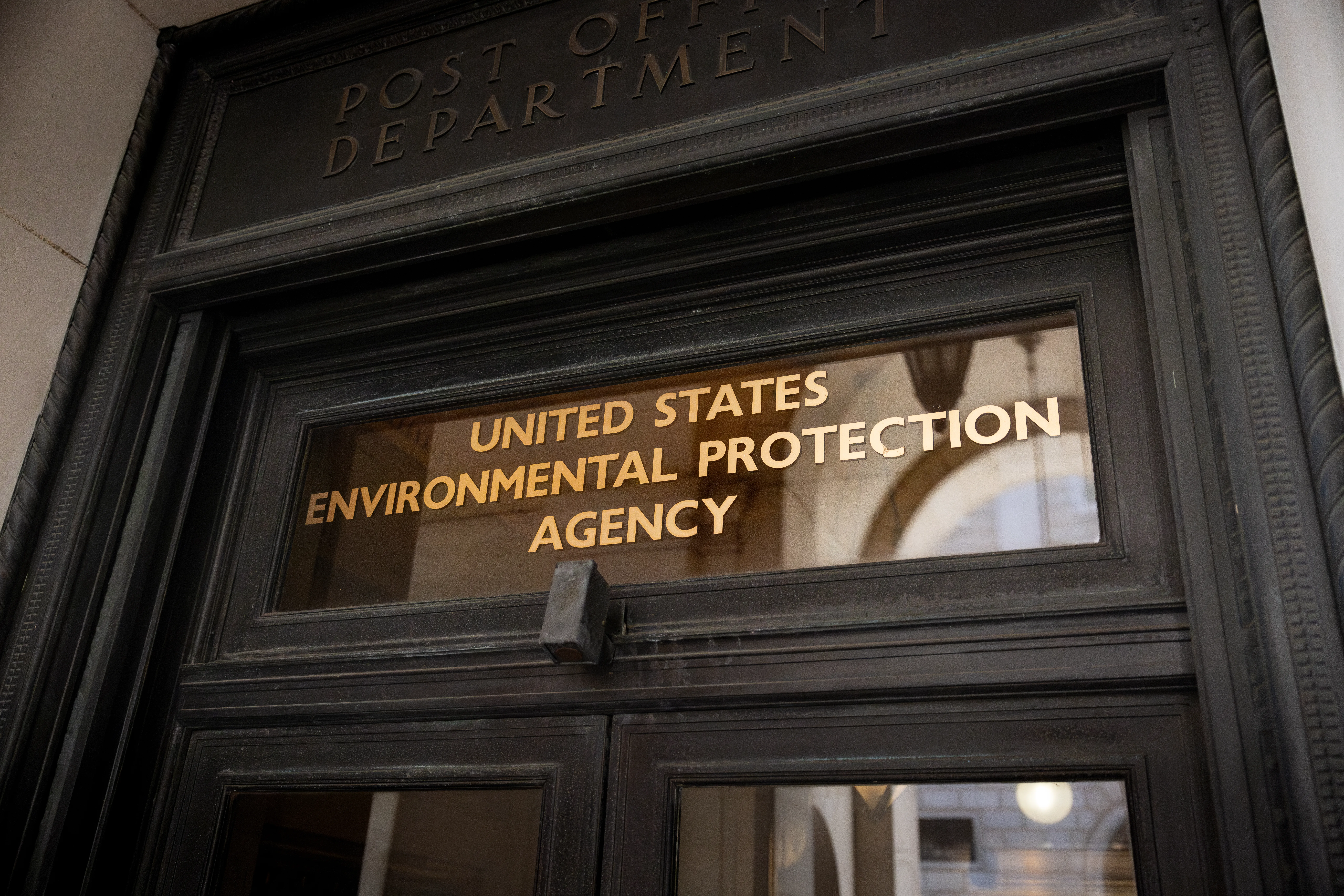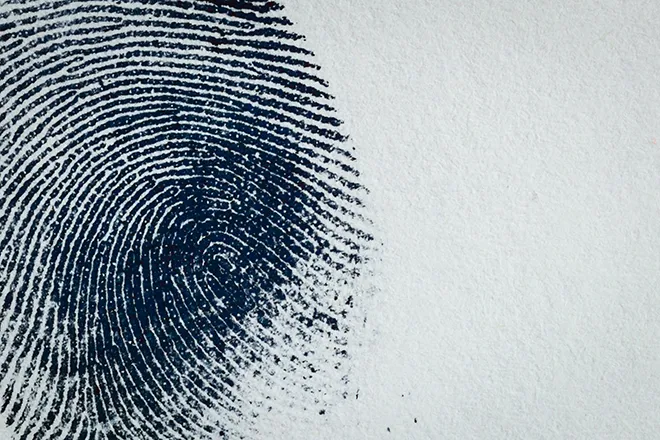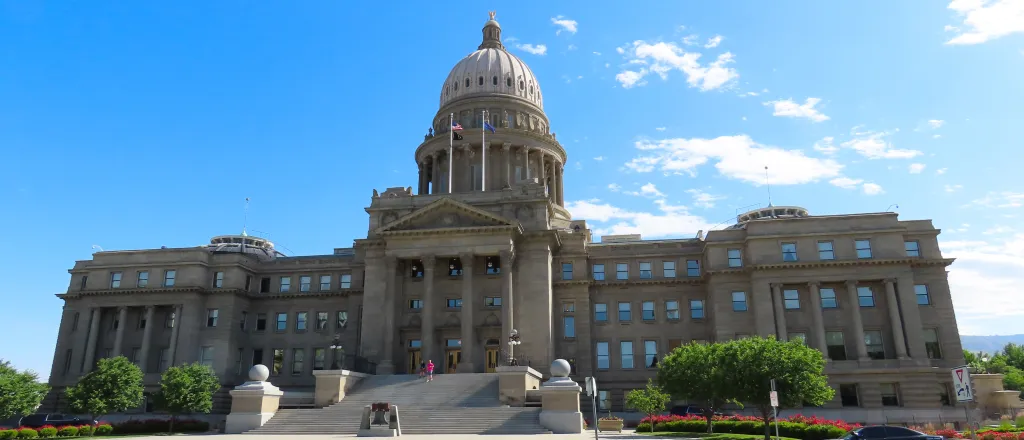
Lawsuits challenge three voter-related laws passed by Montana Legislature
© Amy Wilkins - iStock-2154356979
Two lawsuits challenging three different voter-related laws passed during the 2025 Legislative Session were filed this month in Montana district courts, pushing back against a suite of bills Republican legislators have said are essential to preserve the integrity of the state’s elections.
The Montana Federation of Public Employees on Monday filed a lawsuit alleging a bill repealing election-day registration, and a bill strengthening voter ID requirements, are unconstitutional, while the Montana Public Interest Research Group (MontPIRG) filed suit earlier this month against a bill that prevents college students from voting in a community unless they intend to stay there permanently.
Governor Greg Gianforte, a Republican, signed all three bills, which largely passed along partisan lines, into law.
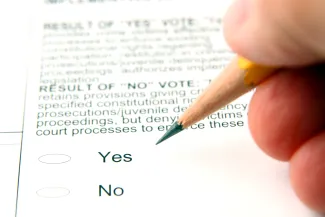
© Svanblar iStock-146069215
House Bill 413, introduced by Representative Jane Gillette, R-Three Forks, changed the definition of residency in Montana code, stating that individuals cannot become residents, and therefore vote, in a county if they are there for “temporary work, training, or an educational program.” The bill includes a requirement that voters intend to make a county their permanent home following their temporary purpose in order to vote.
MontPIRG, which represents nearly 28,000 students across the state, said the law effectively disenfranchises any college students who move to attend school.
“HB 413 singles out these students and requires them to attest—under penalty of perjury—that they intend to make the county where they are studying their “permanent home at the conclusion of” their “educational program,” thus deterring and depriving many students of the ability to exercise their fundamental right to vote,” the complaint, filed in Missoula District Court, states.
As an example, court documents say that a student from Sidney who moves to Missoula for college must predict where she will live after she graduates, and if she doesn’t commit to living in Missoula County, she “cannot register to vote there — the community where she lives works, volunteers, likely pays taxes, and studies.”
But, if that student drops out of school and gets a job in town, she can register to vote as long as she’s been in Montana for 30 days, “irrespective of her future plans.”
While speaking on the bill during the Legislature, Gillette said the bill was not aimed at students, but at temporary workers such as traveling nurses. She also said the bill was about intent — and someone living in a community for several years could still have the intention to leave and that should be taken into consideration before they can vote in that community.

“By imposing special requirements that bar student voters from registering to vote in their communities, HB 413 violates the rights of suffrage and equal protection guaranteed by the Montana and U.S. Constitutions,” according to the complaint.
The two bills challenged by MFPE in Lewis and Clark District Court were carried by Senator Mike Cuffe, R-Eureka.
Senate Bill 490 tightened the deadline for voters to register to vote to noon on the day of the election under the new law, and eliminates registration on the Monday before an election, but opens it up on the prior Saturday.
Previously, anyone in line at the ballot box by 8:00 p.m. on Election Day could register to vote, which has occasionally led to long lines at voting locations.
Last Election Day, some voters waited in line at the Gallatin County Courthouse until the early hours of the morning in order to register and cast their ballot.
Cuffe, in an opinion piece published by Lee Newspapers, cited that example — when votes were cast as late as 4 a.m. — as a reason for passing his bill.
“The intent is to smooth out the process and avoid votes being cast many hours beyond the intended closing of the polls at 8 a.m.,” Cuffe wrote.
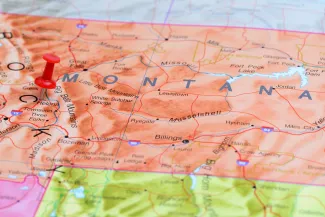
Both of the bills challenged, along with others Cuffe carried in the Legislature, were intended to bolster Montanans’ “confidence in the purity of our elections. That’s why I focused so much of my time on the issue,” Cuffe said.
Senate Bill 276 enacts photo identification voting in Montana, and expands the variety of ID options allowed to include tribal photo ID cards, military IDs, U.S. Passports, driver’s licenses and student ID cards.
“Voter identification is a nonpartisan, commonsense best practice, and I’m pleased that the Montana Legislature agrees,” said Secretary of State Christi Jacobsen in a press release when the bill was sent to Gianforte. “Enacting these voter ID laws will streamline processes for election officials and provide a better election experience for Montana voters.”
The legal complaint from MFPE cites a Montana Supreme Court decision from 2024 that struck down a law passed in 2021 eliminating Election Day voter registration, and another that sought to narrow the list of acceptable photo IDs allowed, as evidence for why the new bills should fail.
“These bills are plainly unconstitutional and clearly contravene the Supreme Court’s (decision),” according to court filings. “This Court must enjoin the Legislature’s attempted end-run around binding precedent and the voting rights of Montana citizens.”
Attorney Raph Graybill, a former Democratic candidate for Lieutenant Governor, is representing the plaintiffs in both cases. The Elias Law Group is also representing the plaintiffs.


